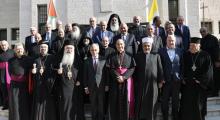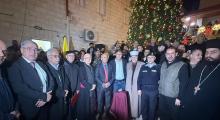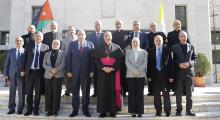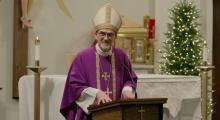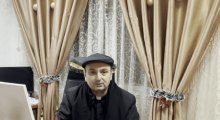Issued by the Catholic Center for Studies and Media - Jordan. Editor-in-chief Fr. Rif'at Bader - موقع أبونا abouna.org
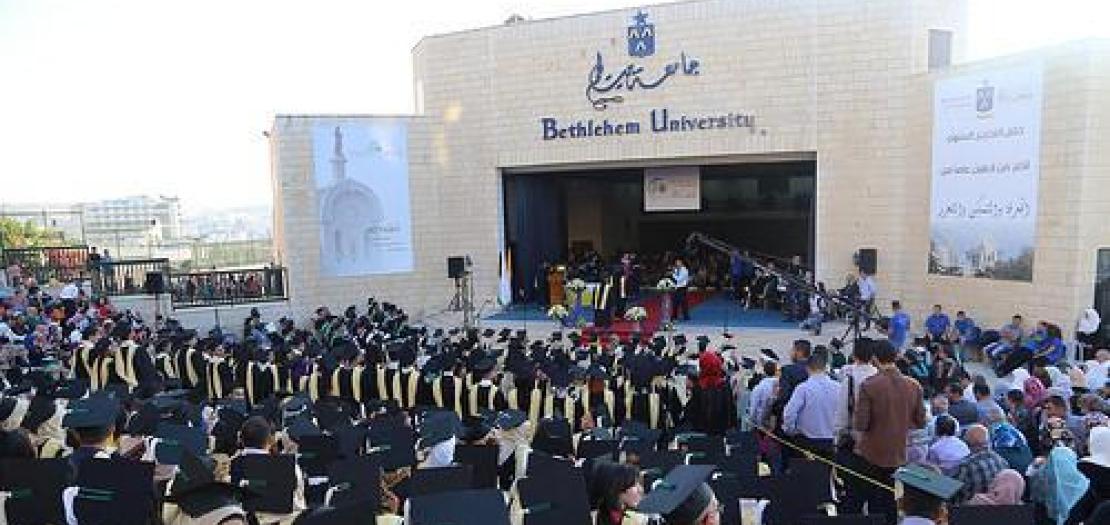
Higher education is the prime objective of enlightened people who seek to take a leading role in societies as it catapults societies into eras of progress, prosperity, and social achievements.
Advanced nations are not merely the ones that own natural resources, but the ones that have highly educated people who can manipulate education into technology, and consequently steer nations into a new world of scientific achievements that dazzle onlookers, and shove countries into industrial, agricultural, and social nonpareil progress.
In other words, education is the cornerstone of progress in any society, as it frees societies from stagnation and from lagging behind advanced nations. Over the past years, the Catholic Church embarked on investing in education, so as to instill in the world highly educated people, who can prop up societies based on intellectual conception of a life leading to common living, love, and harmony among various classes of societies.
According to a recent census of the Vatican's Congregation for Catholic Education, the total number of Catholic universities and higher education institutions around the world stands at 1,358. These institutions serve as “factories” that produce knowledge or rather generations that work for the well-being of humanity.
A study, recently commissioned by St. Mary’s University and conducted by YouGov, showcases how the educational experience of higher education, particularly at Catholic universities, is instrumental in preparing students not just for the workforce, but for a fulfilled and meaningful life. This holistic approach to learning fosters essential life skills that contribute to the well-being and societal engagement of graduates.
The findings indicate that Catholic university graduates are 10 per cent more likely to report that their life closely matches their ideal and 9 per cent more likely to have a clear sense of direction in life, while 15 per cent more likely feel fulfilled in their social life and 13 per cent more likely to feel fulfilled in their community involvement. The benefits of Catholic education can be summed up in striving to develop “the whole person”, to be critical thinkers and ethical leaders, and to inspire students to deepen their faith.
In the Holy Land, there are two main universities, namely Bethlehem University and the American University of Madaba in Jordan.
Bethlehem University located in Bethlehem, the Holy Land, has all the times been a fortified castle of education. It has been a bastion against ignorance and backwardness, as well as a limelight of progress and moderation. It can trace its roots to 1893 when the De La Salle Christian Brothers opened schools in Bethlehem, Jerusalem, Jaffa, Haifa, Nazareth, Turkey, Lebanon, Jordan, and Egypt.
With people, seeking higher education, find it difficult to travel abroad due to financial, and social reasons, they resort to Bethlehem University. It offers 29 undergraduate degrees in areas such as biodiversity, sustainability, nursing, hotel management, education, business and health sciences. Its nine graduate degrees include oncology and palliative care, creative pedagogy, infectious diseases, tourism, child neuropsychology and neurodevelopment disorders.
Bethlehem University, a vibrant a place of higher learning with more than 3,200 students and more than 20,000 graduates, came into being in 1973 following the historic visit of Pope Paul VI to the Holy Land in 1964. This visit had been a great boost to the local people and stimulated religious fervor and Christian pride. The rather circuitous route from this visit to the establishment of Bethlehem University originated with the desire of Pope Paul VI to do something to help the Palestinian people living in the area. This university serves its students in their integral development contributes to building a free, peaceful and vibrant society. It provides quality higher education which forms the whole person in the context of a learning community that provides mind- and heart-touching transformative learning experiences through its academic programs, research, extracurricular activities, and community engagement.
On the other hand, the American University of Madaba whos motto is “Sapientia et Scientia” (wisdom and knowledge) began with a decision by the Latin Patriarch of Jerusalem to establish a university in Madaba, Jordan. The cornerstone of the university was blessed by Pope Benedict XVI in 2009. In his blessing, the Pope confirmed the role of AUM as “a place of understanding and dialogue” and added that students, while assimilating their own culture, “will be led to a deeper knowledge of human cultural achievements, will be enriched by other viewpoints and [will be] formed in comprehension, tolerance and peace.” The AUM currently offers bachelor’s degrees for 19 majors and two graduate degrees in seven faculties, namely engineering, science, health sciences, information technology, art and design, business, languages and communication. It offers a unique learning experience through innovative programs within a multicultural perspective. At AUM, students can take advantage of opportunities offered at large institutions, while studying in small, personalized classes supported by a caring environment.
With Catholic-affiliated universities in the Holy Land serving as beacons of knowledge and enlightenment that open doors wide for students to enter professions with proficiency with unwavering commitment in the pursuit of the common good, the Catholic Church extends further unstinting efforts in the fields of giving a helping hand to people in trouble through its various charity organizations. These Catholic organizations snatch people out of hunger, illness, and poverty by doing their best to alleviate the suffering and to create atmospheres conducive to a good living.
Many thanks are dedicated to the Catholic Church for its constructive role in serving humanity.


